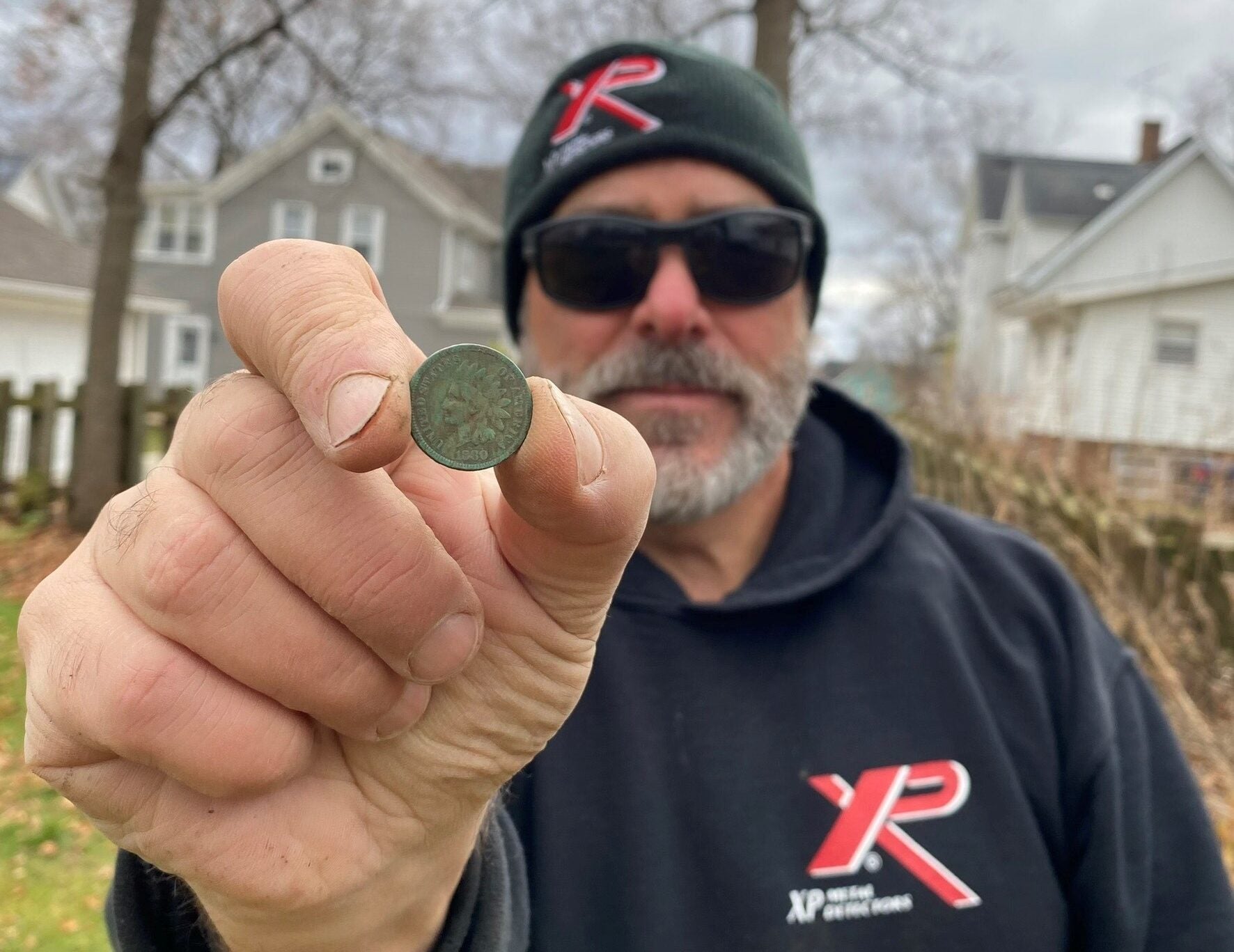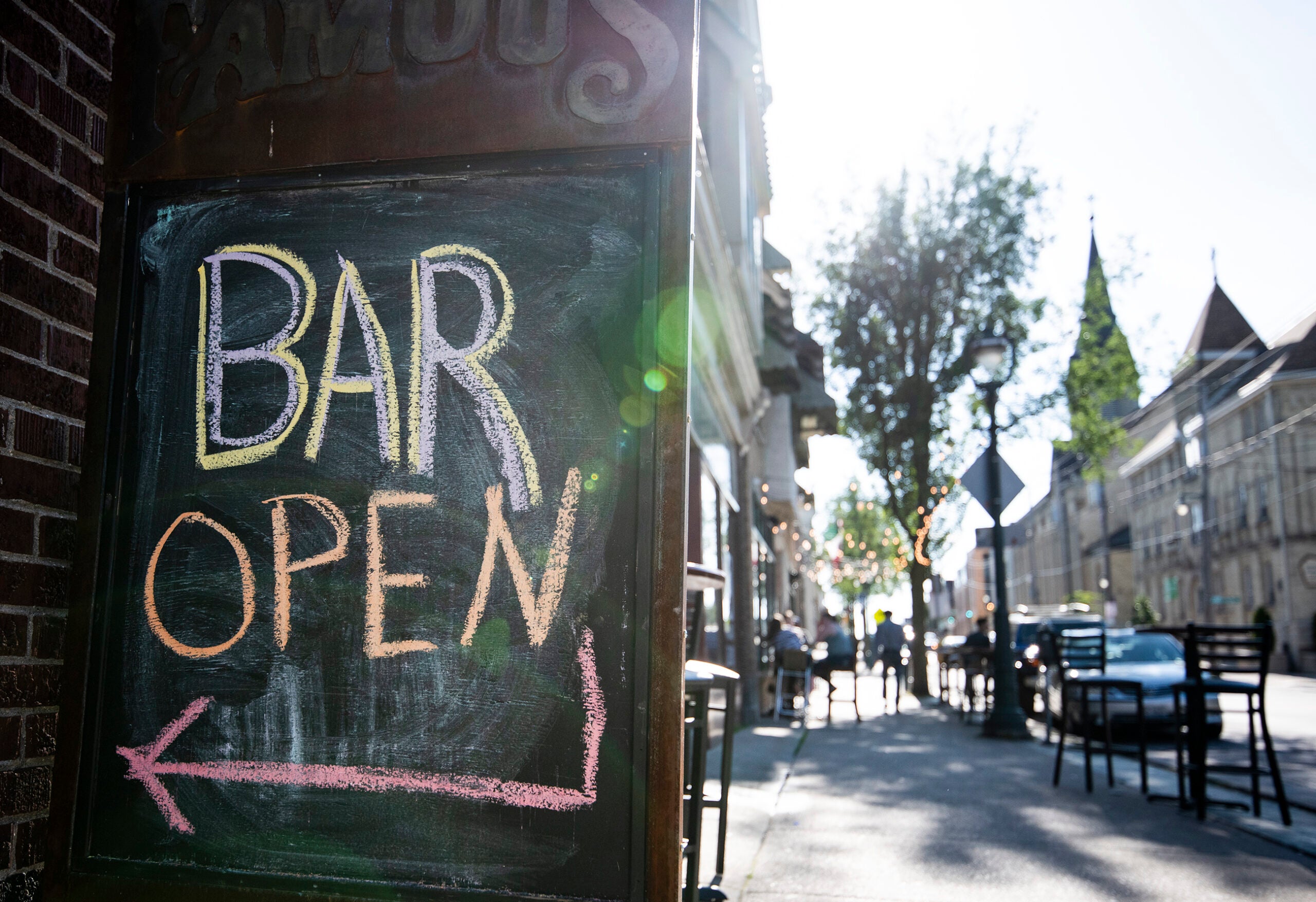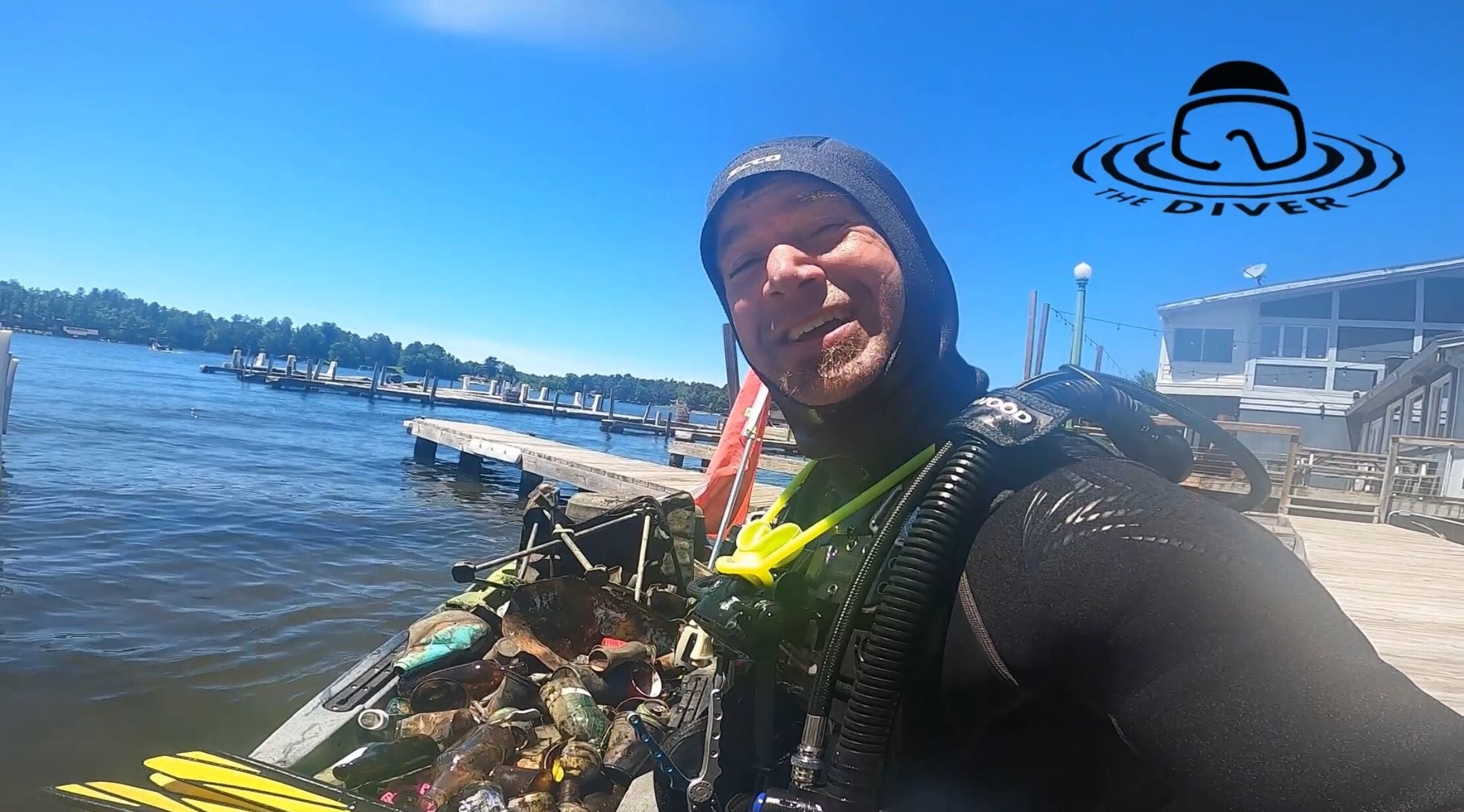Rob Rizzo developed a passion for history before he fell in love with metal detecting.
His grandmother, Marie, owned and operated an antique store called the Richland Thrift Shop in a suburb of Pittsburgh. Rizzo and other grandchildren roamed freely among mysterious artifacts and treasures.
Then in 2018, a few years before retiring, Rizzo’s kids gifted him a metal detector. They knew of his passion for history and thought of the perfect gift for him to discover stories buried underground.
Stay informed on the latest news
Sign up for WPR’s email newsletter.
“Let me tell you, once you find that first cool, interesting item, you are hooked,” he said recently on WPR’s “The Morning Show.” “I’ve been enjoying it ever since.”
Jim Winter got his first metal detector at a much younger age than Rizzo. Five years ago, he cleaned out his garage in Dubuque, Iowa, and found his old metal detector, the same one he had begged and begged his parents for as a teenager.
The wires connecting the battery to the detector had frayed over the years, so this detector was broken. But Winter said stumbling upon his old detector gave him an epiphany: He loved metal detecting as a child. Maybe he should pick the hobby back up again?
Winter bought his first professional-grade metal detector in 2019. He now lives in Beloit and goes by the “Driftless Digger.” He travels Wisconsin giving insights and advice about metal detecting.
Rizzo, known as the “History Digger,” also travels the state and posts metal detecting videos online. Rizzo lives in Oconomowoc and works with homeowners who want their old properties searched for historical objects or lost items.
On “The Morning Show,” the two metal detectorists explained how they’re preserving history more than they’re searching for treasure.
“Metal detecting helps us connect to things in the past that we can bring back to the present and share and preserve — tell the stories about these historical items for future generations,” Rizzo said.
“We research our finds because we want to tell the story of what that find is,” Winter said.
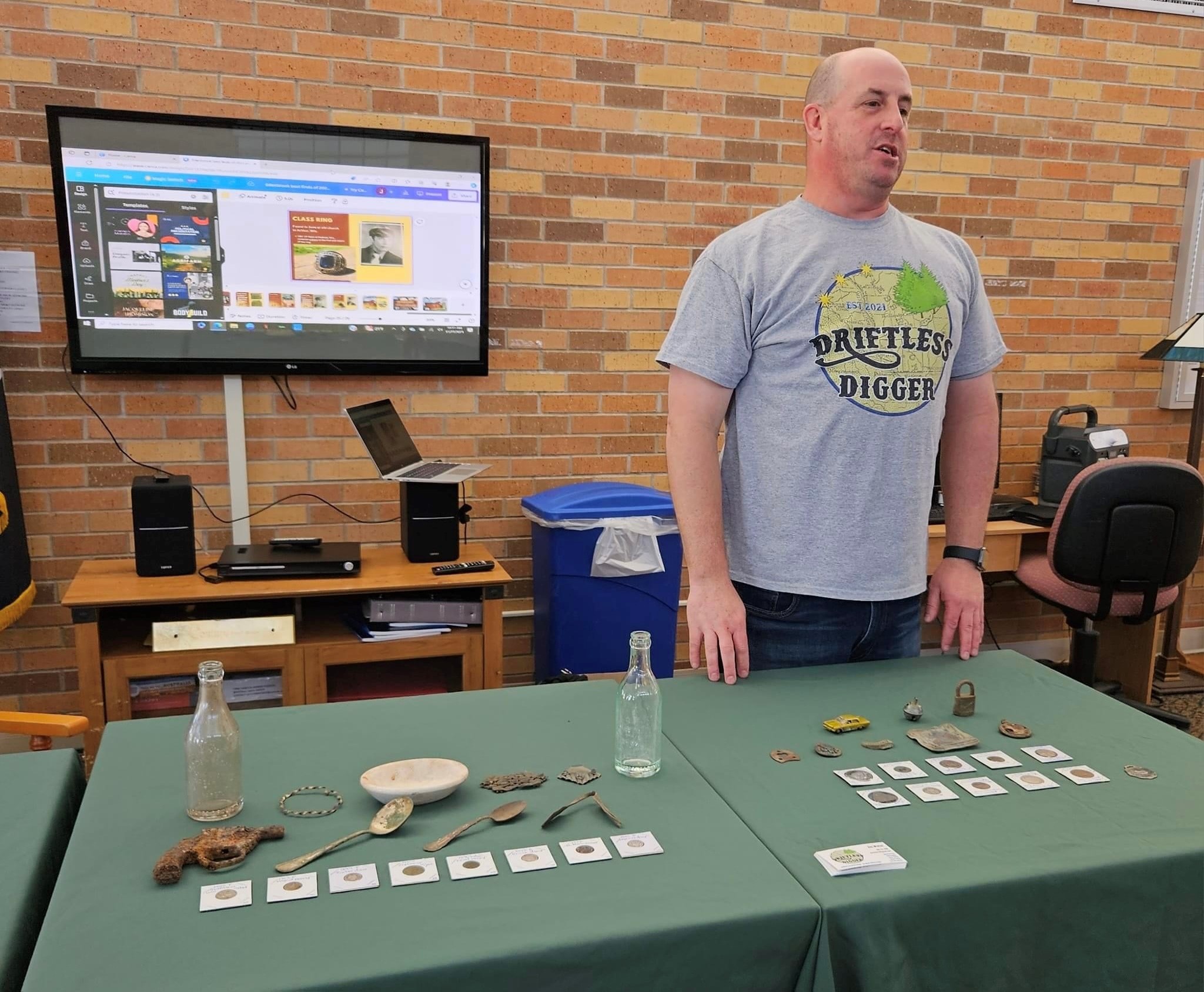
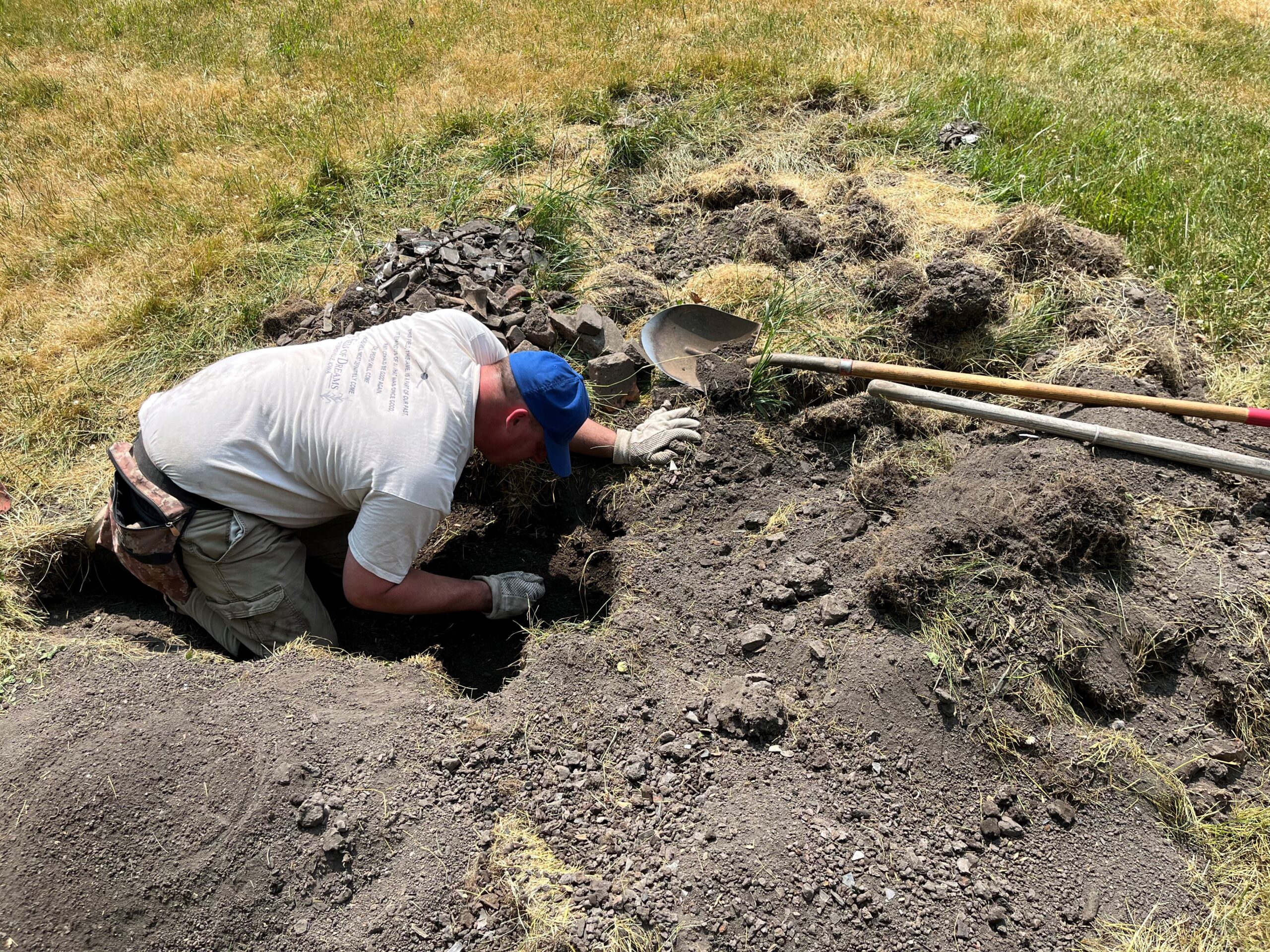
More than treasure
Winter no longer considers himself a treasure hunter.
“I don’t like that term anymore. I call myself a history saver,” he said. “To me, a treasure hunter implies that I’m going somewhere, I’m going to dig everything out of the ground and take it with me. I just didn’t like the way that felt or landed.”
One of Winter’s favorite finds early in his metal detecting days was a church key can opener. He found it at his friend’s house that used to be a one-room schoolhouse outside of Platteville. The can opener had a couple holes like a key would, Winter said. One of the holes fit the screws of headlights on early Model Ts and other cars.
“To me, research is just as much fun as finding the item,” he said. “You never know what you’re going to find coming out of the ground.”
Last year, Winter brought his metal detector to an old church north of Platteville. About 3 inches below a tree root, he found a 10-carat gold class ring from Platteville High School class of 1973. Winter saw the initials M.V. on the ring. He said it became his mission to return the ring to its owner.
He looked up the school’s yearbook at the local library. One class member matched the initials. But Winter said the man died in a car accident in 2006. Winter then contacted a newspaper editor to get the man’s full obituary in hopes of reaching a family member.
Winter found the family’s address and showed up to their front door. After he returned the ring, he learned the deceased man’s grandson had an interest in metal detecting. Winter thought he could show the grandson a thing or two.
This past Christmas, the family bought from Winter a metal detector for the grandson.
“Hopefully someday, he will help somebody recover a class ring or something else and return it to a family, so that hobby is living on in that way,” Winter said.
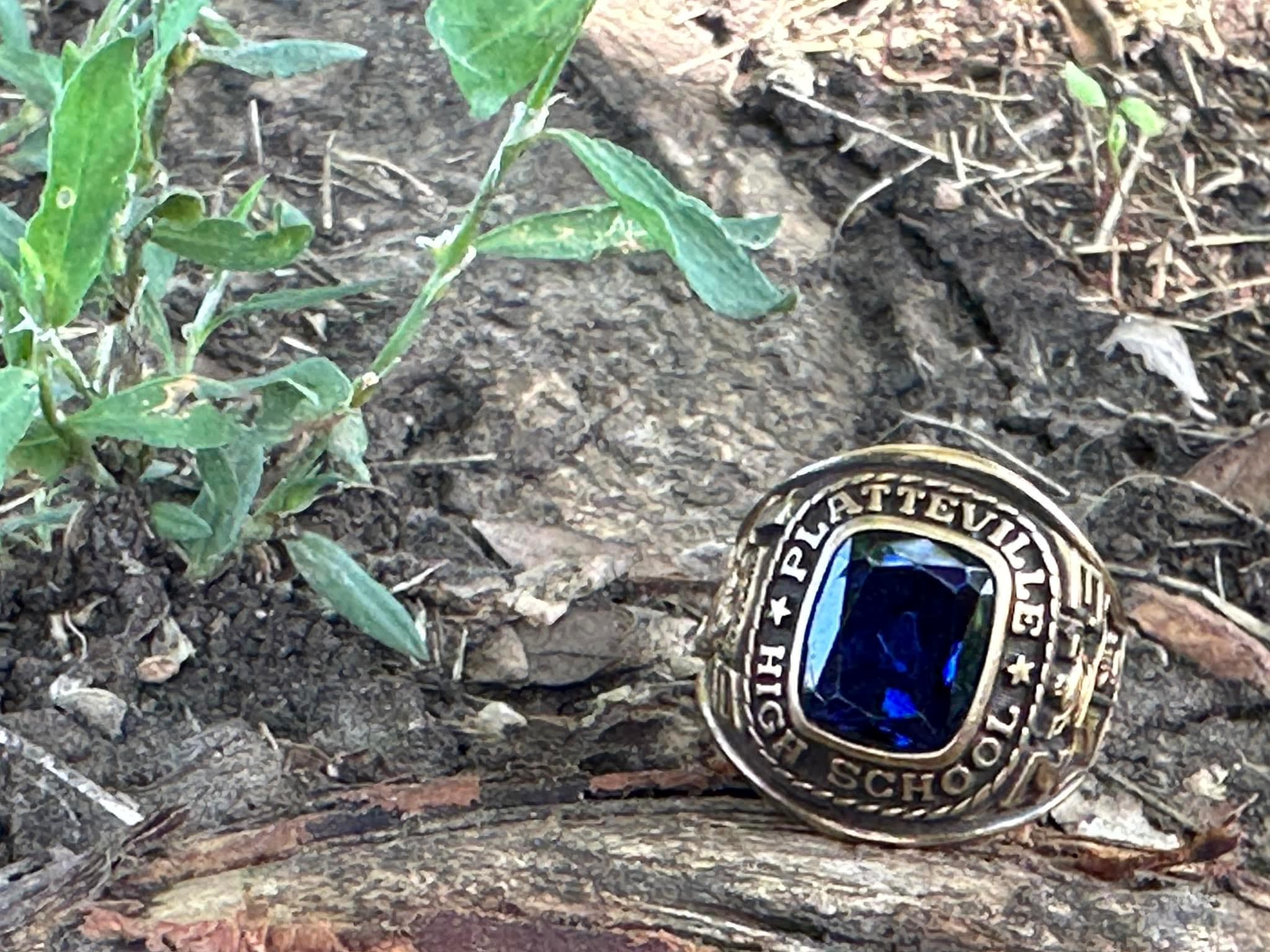
Another family could soon reunite with an old class ring, thanks to Rizzo. In the eastern Wisconsin community of Chilton, he discovered a ring 4 or 5 inches below the surface. The ring included the owner’s initials as well as the class year, 1946. Rizzo used a yearbook to find the ring’s owner.
Like Winter’s discovery, Rizzo learned the ring’s owner had died. Still, Rizzo said he’s trying to connect with the owner’s family and surprise them with the ring.
“It’s going to be a joy to return them something that belonged to their mother or grandmother,” Rizzo said. “There’s so much more than just metal detecting.”
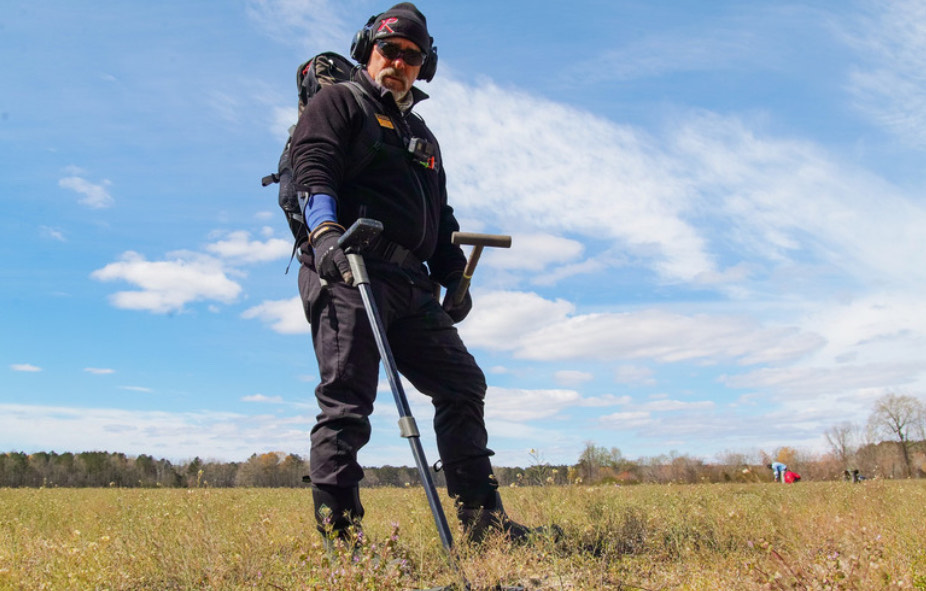
Advice for newbie detectorists
Rizzo and Winter offered several tips for metal detecting beginners.
Don’t go cheap: Winter said cheaper metal detectors — around $100 or $150 — might frustrate beginners because they make one sound for any metal the user moves over. That feature could lead to finding a lot of bottle caps and nails. Winter said spending $200 or $300 could net a metal detector that differentiates its tones and shows the depth of what is in the ground.
Expect trash: Pull tabs, bottle caps, tin foil and nails. Finding garbage is part of the hobby, even if different metal detectors can help avoid finding some trash. As Winter puts it, “You have to find the trash to find the treasure.”
Join a club: Participating in this activity with people who have experience means new detectorists can learn about “metal detecting etiquette,” Rizzo said. Meeting with experienced metal detectorists could lead to valuable pieces of advice. Good etiquette would be getting permission to be in a space, filling the holes you dig and taking the trash you find. Winter said he also gives the property owner the first crack at keeping what he finds.
Know the laws: Rules about where municipalities allow metal detecting vary from place to place. For example, Rizzo said, Wisconsin forbids metal detecting at state parks. Michigan, however, allows metal detecting at some state parks and beaches. City parks follow different rules, too. Some require permits.
Wisconsin Public Radio, © Copyright 2025, Board of Regents of the University of Wisconsin System and Wisconsin Educational Communications Board.
